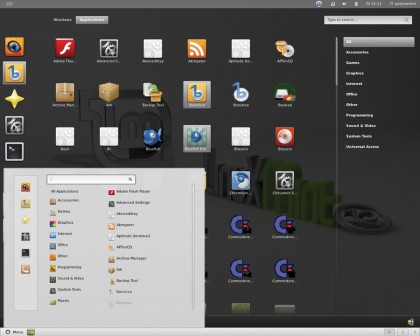Has Ubuntu lost it?
Some say Canonical has lost its way. Are they right?
Getting Ubuntu into consumer electronics would be a massive boon for the open source movement. Let me tell you why. Android is built on Linux. We all know that, but what's on top of the Linux kernel is a mish-mash of proprietary software centres (Google Play, etc.) and commercial 'apps'. Fundamentally, it's a commercial system that happens to be based on an open source kernel.
But, more importantly, it doesn't challenge the established players in any market on anything other than mobile. It doesn't push people to use Linux in any way other than on their phones.
Now, imagine for a moment that Ubuntu phones took off. Imagine they were seen as the third player behind iPhones and Android phones. Imagine going into a phone shop and seeing a display of Ubuntu phones, and having the sales staff show you how to use them.
In this potential future, it probably won't make any difference to you. After all, the fact that you're reading Linux Format means you're probably already a convert. However, imagine what it'll mean to less technical people. The people who - if they've heard of Ubuntu at all - just think of it as a thing for geeks.
Suddenly, it'll be seen as a user-friendly system, maybe even a cool system. If this happens, Ubuntu desktops will inherit the image and be seen as potential computers for everyone.

Ten years ago, Canonical set out to create a mindset of "Hey, Linux can be for everyone", and it did, within the Linux community. By trying to move out into consumer hardware, it's trying to take this mindset to the masses. We don't know whether it'll work, but we applaud them for trying.
If it works, the knock-on effects for other distros could be massive. Not least because the Linux desktop would be seen as a major platform and taken seriously by hardware manufacturers. Computers are changing, and they're changing fast. They used to be on our desks, but now they're in the cloud and in our pockets. Maybe tomorrow they'll be in our glasses and watches as well.
Sign up for breaking news, reviews, opinion, top tech deals, and more.
Time and tide waits for no man, and neither does technological change. To play it safe is to surrender the future to innovators, and get caught up in an endless game of catch-up. From desktop Linux's point of view, to play it safe is to remain forever a niche product for geeks and hobbyists.
To innovate is to get a chance to define the future, but it comes with the risk of alienating your current users. The unique advantage desktop Linux has is that we can do both. Ubuntu can innovate while Mint, OpenSUSE, and all the others play it safe. That's the advantage of the open source ecosystem that we've built up over the years.
But we only have that advantage if people are willing to take risks. Mark Shuttleworth is taking a tremendous gamble. If it pays off, then the whole Linux community benefits.